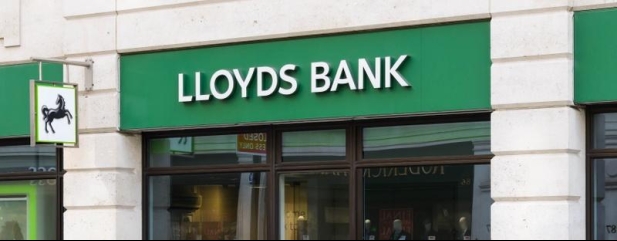Lloyds Bank cuts risk monitoring in effort to drive change

In a surprising development for a company which is usually considered fairly staid, Lloyds Banking Group (LLOY) circulated an internal memo last month letting staff know it was ‘saying goodbye’ to a number people in its risk management team after an internal review found the function was hampering its transformation plans.
The memo from the bank’s chief risk officer, seen by the Financial Times, claimed two-thirds of executives believed risk management was blocking progress while less than half the workforce believed ‘intelligent risk-taking’ was being encouraged.
‘We know people are frustrated by time-consuming processes and ingrained ways of working that impede our ability to be competitive and leave us lagging behind our peers,’ the memo said.
As a result, the lender is ‘resetting’ its approach to risks and controls in order to allow it to ‘move forward at greater pace’.
The timing of the news is equally surprising to many given Lloyds is at the centre of an FCA (Financial Conduct Authority) investigation into whether credit providers – including its Black Horse division, one of the market leaders – overcharged customers who took out car loans through discretionary commission deals with motor traders.
The bank has so far set aside £450 million in provisions for potential misconduct after announcing a 57% jump in profits last year, but some analysts estimate it could be found liable for several times that amount.
According to the latest Bank of England credit conditions survey, household demand for credit increased slightly in the first quarter of this year and is expected to increase again in the second quarter, but the rate of growth is unimpressive.
Corporate demand for credit is also growing, but growth is even less dynamic, and spreads are no longer increasing meaning the banks need to pull something out of the hat if they are to show any kind of growth in their core business – which may explain why Lloyds’ has decided to start taking more business risks.
Yet the Bank of England survey also showed defaults are rising among households and corporates, with further increases expected in the second quarter, suggesting the full impact of the rapid rise in interest rates in 2022 and 2023 is still working its way through the financial system.
Lloyds is due to release its first-quarter trading update on 24 April and we suspect shareholders will be scrutinising the statement to a much greater extent than usual, especially retail investors who make up the bulk of the ownership and rely on the regular income they get from the half-yearly dividends.
Important information:
These articles are provided by Shares magazine which is published by AJ Bell Media, a part of AJ Bell. Shares is not written by AJ Bell.
Shares is provided for your general information and use and is not a personal recommendation to invest. It is not intended to be relied upon by you in making or not making any investment decisions. The investments referred to in these articles will not be suitable for all investors. If in doubt please seek appropriate independent financial advice.
Investors acting on the information in these articles do so at their own risk and AJ Bell Media and its staff do not accept liability for losses suffered by investors as a result of their investment decisions.
Issue contents
Danni Hewson
Feature
Great Ideas
News
- Lloyds Bank cuts risk monitoring in effort to drive change
- Lok’n Store shares leap on Shurgard cash offer
- Shares in personal care firm PZ Cussons hit 20-year low
- Has Associated British Foods-owned Primark maintained its momentum?
- Prospects for US interest rate cuts reduced as inflation remains sticky
- Service sector inflation undermines market rally
- Can Amazon continue to beat ‘The Street’?
- What have we learned from the US banks’ first-quarter updates?

 magazine
magazine








